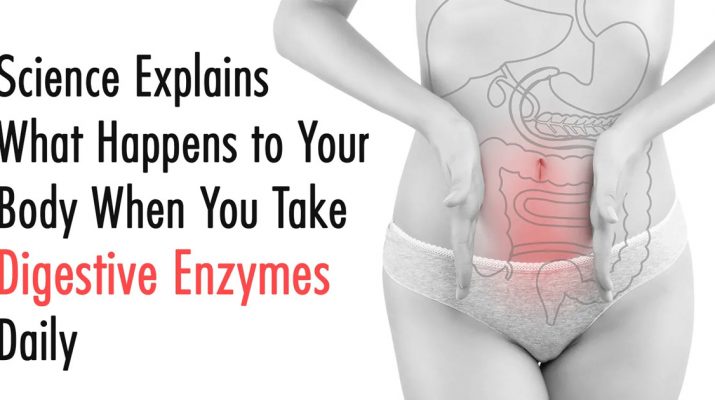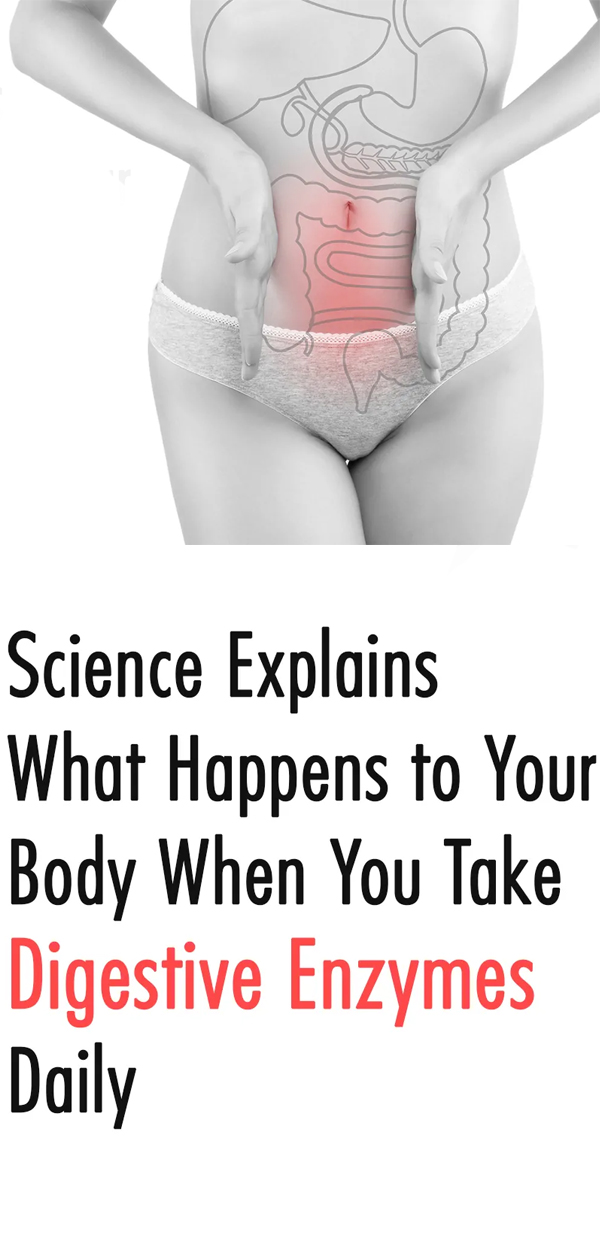Digestive enzymes – proteins produced by the body – aid digestion and help break down the foods that we eat. The pancreas produces digestive enzymes, while the mouth, stomach, and small intestine produce lesser amounts.
Digestive enzymes may also be taken in supplement form, usually as a chewable tablet or pill. Supplement-based catalysts may consist of one or more enzymes, and some are packaged and sold along with probiotics (“good bacteria” that aids digestive health and is essential to the breakdown of foods.)
“(Digestive enzymes) are secreted with beautifully orchestrated precision by your digestive organs to accelerate the breakdown of food so your gut can extract and distribute the nutrients…” ~ Steven Lamm, MD, The Dr. Oz Show
Why Are Digestive Enzymes Important?
Put simply, our body could not break down foods (or nutrients, minerals, etc.) without supporting enzymes. Studies show that a lack of digestive enzymes causes the stomach to become more alkaline. When these enzymes become less abundant, it may lead to a host of digestive problems including bloating, excessive gas, food intolerance, and even food allergies!
Some evidence suggests that increasing one’s digestive enzyme intake may reduce abdominal pain. Multiple studies have found a relationship between pancreatic enzymes and the reduced risk of some severe medical conditions, including chronic inflammation and certain types of cancer.
Types Of Digestive Enzymes
There are four classes of digestive enzymes, each with their respective functions.
Amylase. This converts carbohydrates into simple sugars such as glucose. The saliva in your mouth contains amylase, as does your pancreas. The breakdown process begins before you even swallow!
Lipase. This converts fats into molecular form, enabling it to pass through the intestines. Lipase is produced mainly by the pancreas, with the stomach and mouth taking a smaller role.
Nucleases, the building blocks of nucleic acids, break down acids such as DNA and RNA. As these acids reach the lower part of the small intestine, they are digested as sugars and phosphates.
Proteases, also stored in the pancreas, assist in the breakdown of proteins into amino acids. Amino acids are the central building blocks for many physiological functions.
Who Should Take Digestive Enzymes?
Optimizing digestive enzyme levels is not necessary for everyone. For normal, healthy individuals, your diet alone will suffice. (A bit of supplementation to be on the safe side doesn’t hurt, however.)
That said, certain people can benefit by taking active measures to boost their enzyme production. Individuals who should talk to their doctor about enzyme supplementation include:
– People with liver troubles. A strong correlation exists between people with liver issues (including liver disease) and low digestive enzyme counts. If you have liver problems (about 15 percent of us do), then consider boosting your digestive enzymes.
– People with digestive disorders. Those with conditions such as acid reflux, irritable bowel syndrome (IBS), Crohn’s disease, ulcerative colitis, and others, may benefit from enzymes as they are known to alleviate the gastrointestinal stress of these conditions.
– People who are aging. As we get older, the “triggering” mechanisms that help prevent acid from entering the intestine are less responsive. This can lead to a decrease in our normal digestive processes, yet digestive enzymes can help curtail this problem.
Improving Digestive Enzymes
“He that takes medicine and neglects diet, wastes the skill of the physician.” ~ Chinese proverb
Digestive enzymes are not only a crucial element of healthy digestion, but they also play an important role in for our health and well being. These enzymes help extract essential nutrients that we need to not only survive but thrive.
While we can find a multitude of good digestive enzymes as supplements, we’d be wise always to try a natural way first. The “natural way” being, of course, through food.
Research shows that eating a high-fat, low-carbohydrate diet may boost your body’s natural levels of digestive enzymes by 40 percent when compared to a high-fat diet, moderate-carb diet. A high-fat, low-carb diet also supersedes any other dietary alternative.
If supplements are your thing, you should know a bit about how they work. Digestive enzyme supplements come from one of three sources: fruits (pineapple and papaya), animals (ox and hog pancreatin), and plants (probiotics, yeast, and fungi.)
The top 3 brands of digestive enzyme supplements we recommend are:
- Zenwise Labs
- Enzymedica Digest Gold
- Rainbow Light
Enzymes in pill form are a bit more fragile, as the coating is likely to be dissolved before the contents can be absorbed. Products that are enteric-coated, ensuring that they reach the small intestine, may help.


